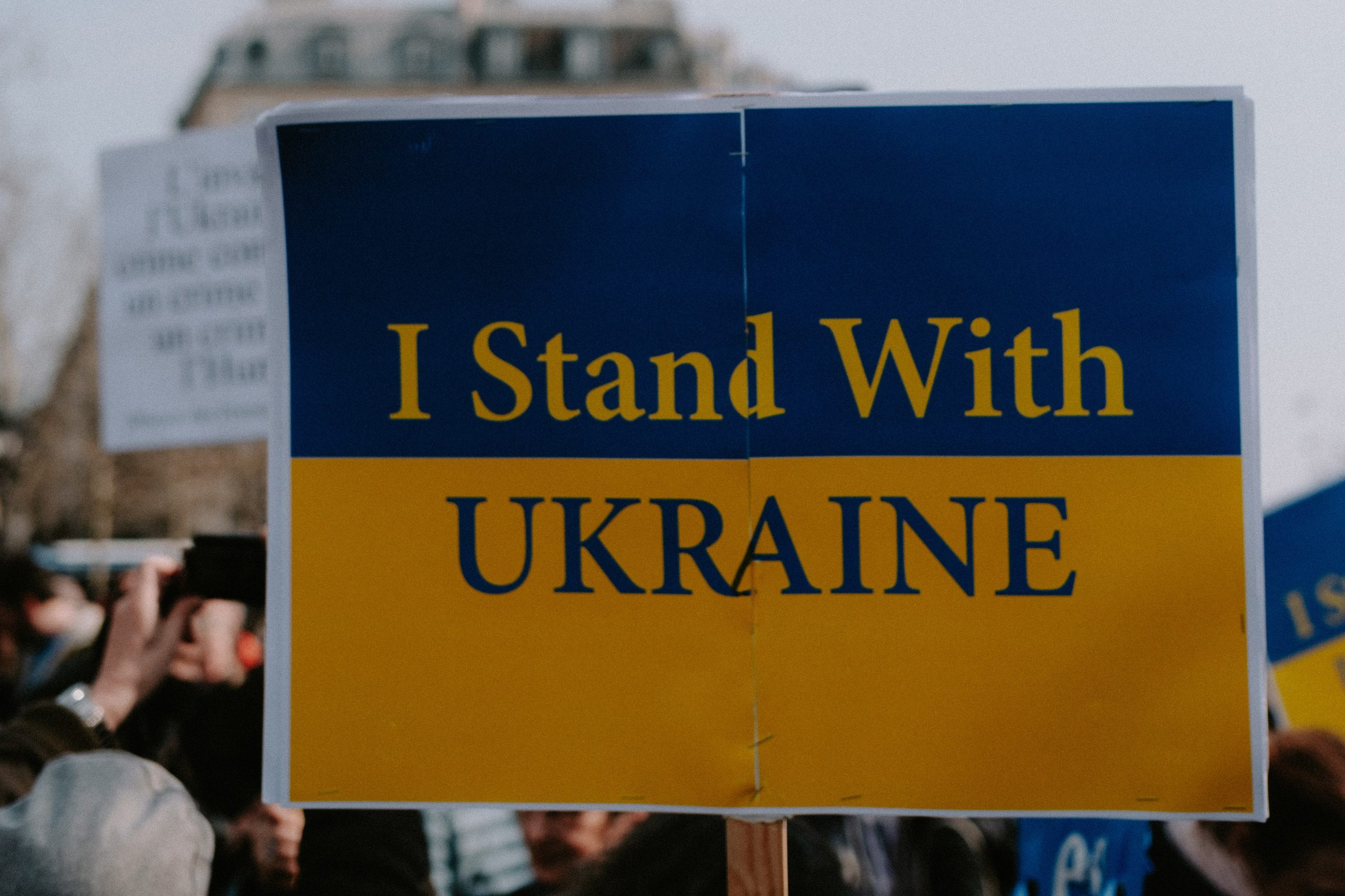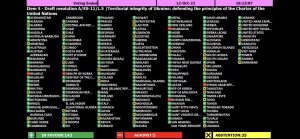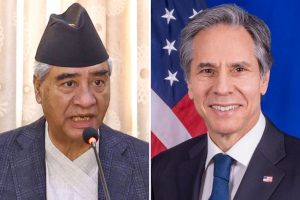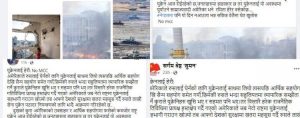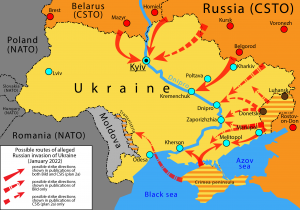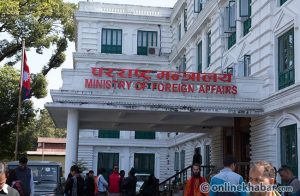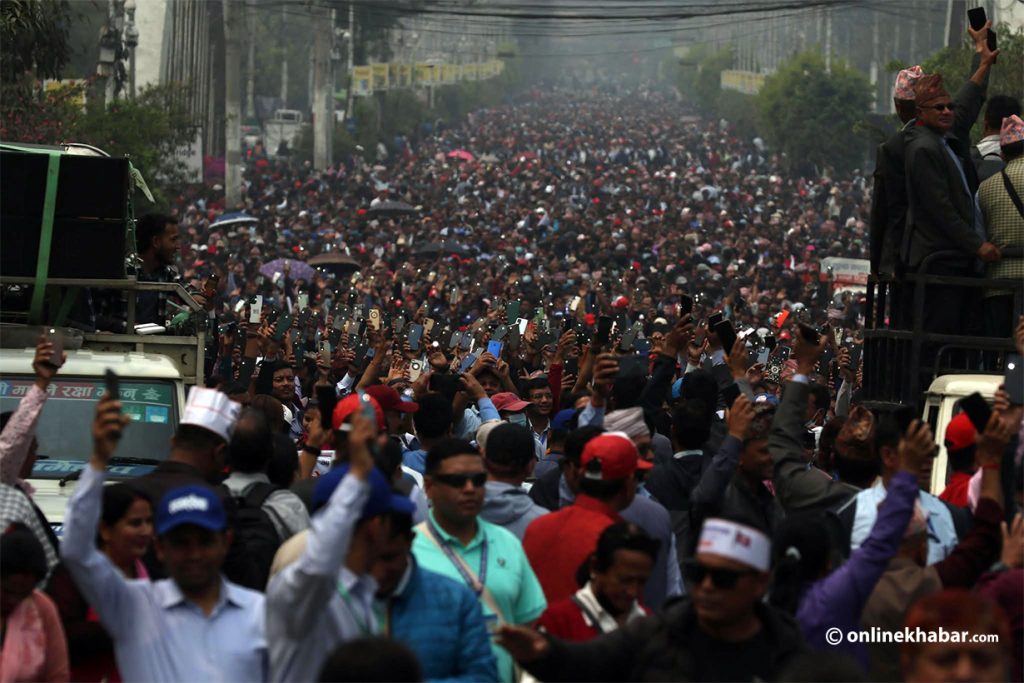Despite being a small nation, Nepal has protested the Russian invasion of Ukraine this time. This drew the attention of the international world as its big neighbours–India and China–abstained from a crucial UN vote about the issue. However, critically analysing, Nepal’s move stems from the concerns it has about the security of small nations such as itself.
Ukraine and small nations
The western leaders are addressing the Russian invasion as ‘unprovoked’. The Russian and Eastern pundits, however, are tracing events that left Russia no choice but to start the military intervention.
Whatever be the reasons or justifications and their validity, the Russian invasion of Ukraine has posed a larger question about the functioning of the entire world order. The concerns are not bound to a single event of Russian invasion of Ukraine but its effects and indications can be seen in future dealings with other nations. One such concern is the security of small nations that are in proximity to great military-nuclear powers or their area of interest.
Small nations refer to the nations with a relatively small territory, weak military or economic power and no nuclear weapons. Hakan Wiberg, Lund University Peace Research Institute, writes there are two notions of small nations: absolute and relative. The absolute notion entails objective indicators such as population, area, economic indicators, military indicators, etc. Relative notions entail ‘smallness’ as a lack of influence on or high sensitivity to or lack of immunity from influences. Ukraine is the second-largest European nation, but it is vulnerable and prone to intervention from the relatively large and nuclear nation, Russia.
Small nations have historically been vulnerable to military attack and their sovereignty being compromised, especially the ones in proximity to large nations. The Iraqi invasion of Kuwait (1990), the Israeli invasion of the West Bank, Gaza Strip and Lebanon, the collation invasion of Iraq (2003), the Russian invasion of Georgia (2008), and the Russian invasion of Ukraine (2014 and 2022) are some recent large scale examples.

Mostly superpowers such as the USA, UK, France, China, Russia etc are involved in direct or indirect threats to the security of small nations. Historians Christopher Kelly and Stuart Laycock, in their book, America Invades: How We’ve Invaded or Been Militarily Involved with Almost Every Country on Earth, mention the United States has invaded or operated militarily in 84 of the 193 UN-recognised nations.
The UN’s role in protecting small nations
When Iraq invaded Kuwait on August 2, 1990, The UN Security Council passed a resolution on direct military intervention to liberate Kuwait which led to ousting of the Iraqi forces and restoration of the sovereignty of Kuwait.
The UNSC has the mandate from UN Charter to authorise such military intervention. The UNSC cannot be expected to take a fraction of the measures taken during the Gulf war in the present invasion of Ukraine because Russia is a permanent member of the UNSC with veto power, a strong military and most notably has nuclear weapons. No international personality is willing to directly confront such nations to protect the security of the small nation due to fear of prolonged conflict and ‘nuclear Armageddon.’
The precedent can be seen in the US invasion of Iraq (2003), against which the largest protest around the world occurred before the invasion and the then UN secretary-general condemned the invasion as illegal after it started. Still, the US military stayed in Iraq up to 2011. The USA had great political influence and it is still the largest funder of the United Nations.
The International Court of Justice, adjudicating the case Nicaragua v the United Nations, held that the USA was in breach of its obligations under customary international law not to use force against another nation, not to intervene in its affairs, and not to violate its sovereignty. The ICJ ruled in favour of Nicaragua, a small nation, stating the supply of weapons to rebels by the USA within the territory of Nicaragua is illegal.
The ICJ has precise rules for Jurisdiction and it cannot adjudicate without the consent of parties. Moreover, when the ICJ gave an order stating the USA should ensure that its sanctions against Iran should not restrict humanitarian aid or compromise civil aviation safety on October 3, 2018, the USA claimed the ICJ had become ‘ineffective and politicised’ and withdrew from the ICJ Optional Protocol, which establishes jurisdiction.
Implications in Nepal
The only way, hence, is to align with alternate power. During the Korean War (1950-1953), South Korea was supported by US-led UN forces whereas North Korea’s existence was ensured by the direct intervention of China. The Communist government in Cuba was aided and protected by the USSR which led to its existence throughout the Cold War. During the Cold War, many nations sided with either superpower to protect themselves and reap benefits from their hostility, but many nations were plunged into civil war or their government was disposed of by coups perpetrated by either side of the cold war.
As shown by the Russian invasion of Ukraine twice, aligning with alternate power does not guarantee security. Moreover, if the invading nation has nuclear weapons, the support by alternate power is always indirect, fuelling civil wars as seen in Afghanistan, Vietnam and the Latin American Nations. The USA and USSR never faced each other in a direct military confrontation during the entire Cold War of 45 years.

One of the most concerning implications of the Russian invasion of Ukraine is its effect on the mindset and future dealings of nuclear nations in dispute with non-nuclear nations. China has numerous disputes in the South China Sea, especially with Vietnam and the Philippines. Israel is consistently encroaching on the remaining Palestinian territory in West Bank and Gaza Strip. India has a military presence in Kalapani of Nepal.
The impunity of action and no deterrence from economic sanctions may motivate nations like Israel, China, India and other regional powers to follow same footsteps, concerning nations like Taiwan, Palestine, Lebanon, Nepal and Baltic states. The concern is not that these nations have become more likely to invade smaller nations like Russia, but these nuclear nations may take a more aggressive stance in disputes with small nations.
There has been an infinite amount of small encroachment on small nations by neighbouring big nations. Nepal alone faces territorial encroachment at 71 places throughout the 1,880km border with India and two places throughout the 1,440km border with China, not to mention the meddling in domestic politics and internal affairs.
In this scenario, the present Russian invasion of Ukraine demands an answer to the question of sovereignty and security of small nations such as Nepal more than ever. The frequent political, military and economic aggression towards them has challenged the world community to answer, how and who protects the sovereignty and security of small nations in case of encroachment by large and nuclear nations.
The present international legal order will fail if it cannot cure the old disease of the international arena – the Matsya Nyaya, the big constantly encroaching on the small. This context demands a framing of a new mechanism to protect the security and sovereignty of small nations.
Nepal as a small nation, sandwiched between two nuclear powers India and China, should examine the context and implication of the present Russian invasion thoroughly for determining its take on the invasion and pave its future foreign policy.



